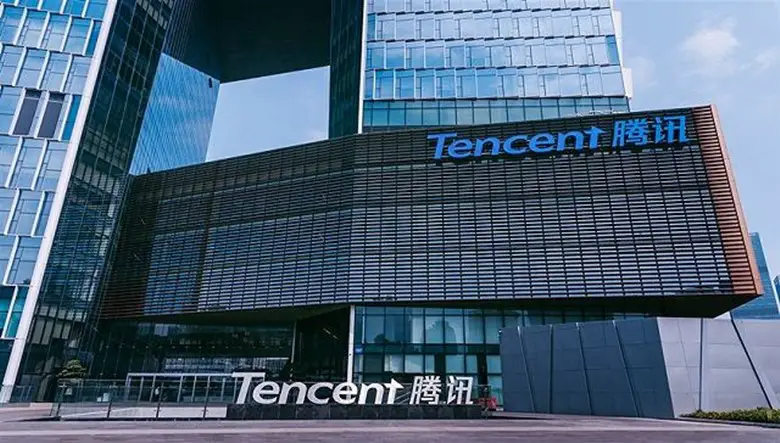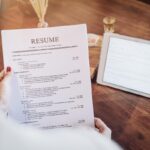
Tencent test engineer job interview experience sharing
Tencent test engineer job interview experience sharing
Today, I will share with you the interview experience of Tencent’s testing position. For those who are willing to work in the goose factory, you can take a good look. I hope these experiences and experiences can help you!
01. One side: technical foundation, comprehensive and solid
Everyone knows that one side is a technical interview, and most of the interviewers are technical leaders from various departments. Unlike development positions, technical interview questions for test engineers cover a wide range of aspects, at least in Tencent. C/C++, data structures, operating systems, databases, development under the Linux platform, etc., because for testing positions, the tested product objects may involve various fields, including front-end pages and back-end servers. Yes, under Windows, Linux, etc. When I was interviewing, the interviewer would quickly ask a series of questions in these areas. Basically, you answer one question and then ask the next question. I felt like I was doing a quiz. However, don’t worry, the questions asked are very basic questions. It is best to review the content of these courses before the interview, especially the parts that you are already unfamiliar with, so be prepared. One of the biggest features of the testing position is that it will definitely let you write code. Generally, you are given a topic, and after a few minutes of thinking, write the relevant program on paper. Students who have not written programs on paper can practice exercises in advance.
A few things to watch out for:
1. When answering technical questions, you don’t need to rush to give the answer, you can think first.
The interviewer may ask a series of questions quickly, but you don’t have to worry about it. Unless you are particularly convinced, you should wait until you think about it and feel that the answer is no problem before answering. There is no time limit for the interview. And rushing to answer can also create tension, and perhaps unnecessary mistakes.
2. Dare to write programs, it is normal to have mistakes.
The interviewers of Tencent’s test positions place great importance on the coding ability of the interviewees. During my internship in the company, one of the interviewers happened to be my department director. I asked her in a private chat why Tencent’s testing position still needs to examine the ability to write code. What she told me was that the work of the testing position is not only Use some tools and click the mouse to experience the product features. In many cases, you need to write test scripts or even develop test tools yourself, so coding ability is the foundation. When you write, don’t be afraid that the program you write has errors. It is normal to have errors, and the interviewer understands this. The key is to write your ideas to solve the problem. When the interviewer looks at the program you wrote, you can also explain your code to him, so that he can understand your ideas.
3. When writing program questions, think carefully about the requirements of the problem, and try to be comprehensive and meticulous.
The program question in my interview is to give the file path of the system and print out the names of all files in this path directory. The interviewer also reminded me that this question is a trap, and I need to think about it carefully. This problem seems to be very simple, use a tree structure to store the path of the file directory, and then iterate to find all the files. But think about the trap mentioned by the interviewer, and think for yourself: if the given target path is wrong, such a search is meaningless. Therefore, it is necessary to first perform an error analysis process on the input path. What the interviewer wants to see is not that you implement a function, but solve a problem, which requires us to correctly handle normal situations and have a corresponding response mechanism for possible exceptions (errors).
4. Grasp the opportunity to ask questions to deepen the interviewer’s impression of you.
Usually when the interview is about to end, the interviewer will ask you if you have any questions. Many people directly say no, and then the interview is over and they leave. I personally feel that I can still ask some questions related to the position. Interviews are two-way, not just a question-and-answer model. Moreover, your active questioning hints to the interviewer that you are very interested in this position and hope to have a deeper understanding of this position, which is also a positive impression. Give it a try no matter what the interview!
02. Second side: project experience is not experience, it is mainly the summary and harvest of one’s own analysis
Passing the classmates on one side shows that the company has recognized your technical foundation. The interviewer on the second side mainly talks to you about what projects you have done. Generally, you will be asked to introduce one or a few projects that you feel will benefit you the most. You can introduce the background of the project, your main tasks, etc. You can play freely by yourself. However, it should be noted that project experience does not equal project experience. What the interviewer wants to hear more is your own sorting and summary after completing a project, not just how much you have done.
My interviewer on the second side asked some questions like: Do you make a summary of the projects you have done before? Now, can you come up with better solutions for your projects? ?If the software you developed is made into a commodity, what features do you want to add? Wait, the whole second aspect gives me the feeling that the interviewer wants you to have project experience, so that you can integrate into your team faster. However, having a lot of projects does not mean that you have a lot of project experience. We can only do some simple projects, but every time we do something, we need to be able to think about something from the process and have our own conclusions.
A few small tips:
I’m a little nervous when I’m on the side, especially when I’m interviewing for the first time. But after passing the first session, you must first have more confidence in yourself, you should be more relaxed , and there are no technical problems on the second session, so you don’t have to worry about answering the wrong answer. The interviewer is no longer asking questions, but chatting with you, so don’t be nervous about whether your answer is right or wrong. Confidence and calmness are half the battle.
When talking with the interviewer about your own projects, try to focus on your problem-solving process and your own ideas , as well as your own thoughts on those projects. You can recall them before the interview and sort them out in advance.
Don’t be passive when you’re on the other side. When talking to the interviewer, avoid asking a question. For the interviewer’s question, you can answer it in detail and comprehensively, but don’t repeat the content that the interviewer already knows. Secondly, you can also mainly say something related to the project. You can also ask some questions to the interviewer, so that there is a back-and-forth communication, which can make the interview atmosphere more relaxed, facilitate your own play, and leave a deeper impression on the interviewer.
03. Three sides (HR side): victory is in sight, but still be careful
For interviews for technical positions, if you get three-sided notices, basically the offer has been decided, and Tencent is basically the same. The HR interview is also the HR interview. Several questions I encountered in the HR interview for the test position are:
1. Why did you choose the testing position?
Mainly I want to hear your understanding of the testing position and your own views. When answering, you can focus on the significance of the test, its role in quality assurance, and so on.
2. What do you think a good test engineer should have?
Patience, the ability to analyze and solve problems, the ability to communicate, the ability to sort out and summarize, etc.
3. What do you think the relationship between testing and development is like?
Testing and development are not antagonistic, but complementary and mutually reinforcing. The ultimate goal of testing and development is the same, both are to provide users with high-quality products and services.
4. What are your future career plans?
Feel free to play! ^_^
Finally, I would like to say that finding a job is really about fate: whether your ability and personality really match a company depends entirely on your eyesight and opportunities, because the same behavior reflects the value in the eyes of different people. Totally different. Sometimes we only seek an opportunity to enter the enterprise for the sake of a famous enterprise, no matter whether we are suitable or not, which is not right.
CAREER PATHS, Changing Jobs, JOB HUNTING, Job Interview Tips





